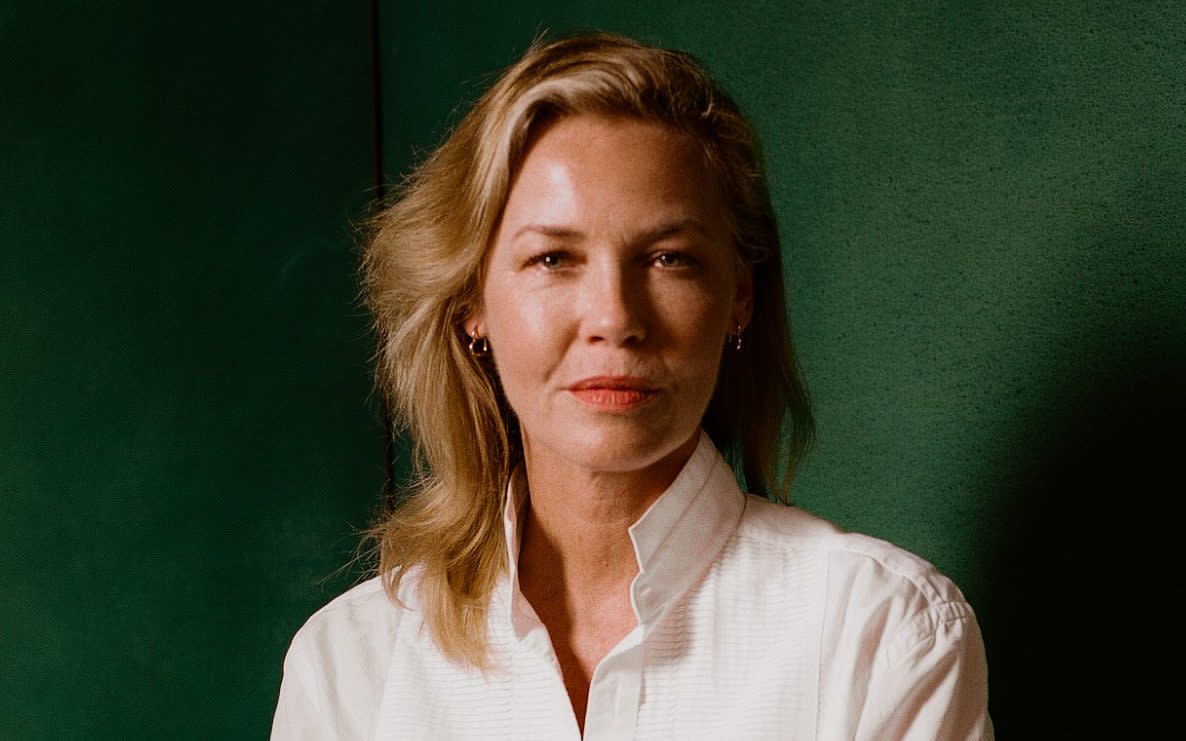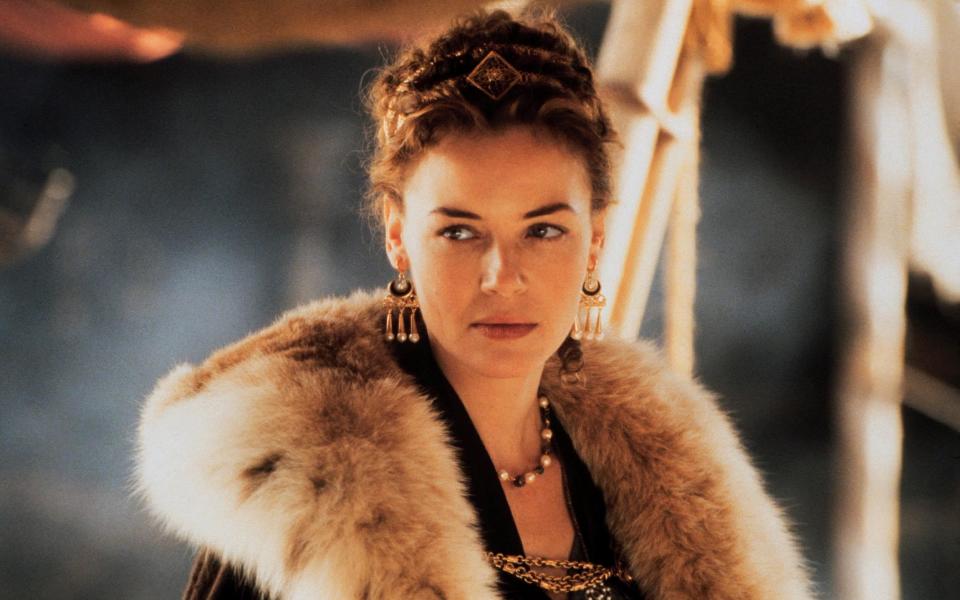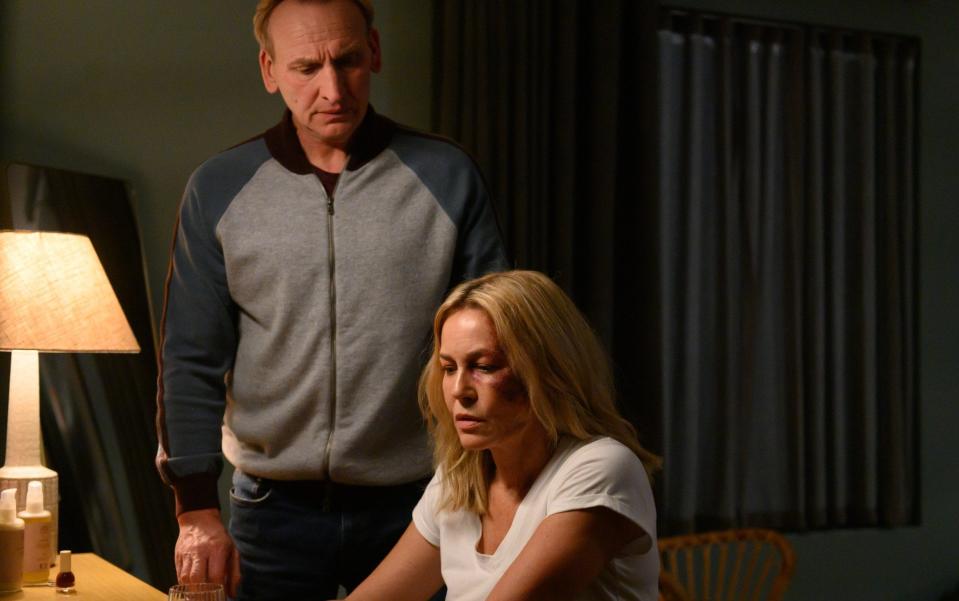Connie Nielsen interview: ‘People assume tall blondes aren't interesting’

“We’ve seen a lot of crime dramas that begin with a blood-spattered blonde on the floor,” says Connie Nielsen. “We’ve seen women and girls used over and over as professional victims. As violated bodies. Passive corpses.”
Best known for playing the politically astute Lucilla in Gladiator (2000) and the mighty Amazonian Queen Hippolyta in Wonder Woman (2017), the 56-year-old Danish actress has spent her career resisting the passive blonde stereotype. “There has been a willingness among both men and other women to push aside who I am as a person,” she says. “They think: tall, blonde – oh, she’s not interesting. The best response is to be as earthy and approachable as possible.”
Speaking from Brussels – where she is filming a miniseries about the life of Out of Africa novelist Karen Blixen – Nielsen tells me that she was attracted to the lead role in Close to Me, a new six-part thriller on Channel 4, precisely because of the wry way in which the series subverts the old sexist clichés. So although it begins with a textbook shot of Jo, its platinum-haired heroine, spreadeagled in a pool of her own blood, the apparently passive “victim” soon finds her voice, and a deliciously witty one it is too. “Well, you seem to be alive, Jo. Just,” drawls Nielsen in a drole voice-over. “What does a girl have to do to get an ambulance around here?”
Jo has suffered a traumatic brain injury, which leaves her with no memory of the previous year. She doesn’t recall where her grown-up children are living, or what they are doing. She can’t remember why her best friend is no longer speaking to her. Most alarmingly, she has no idea how she ended up lying broken on the expensively-tiled floor of her unnervingly immaculate family home. “Are you having an affair?” she asks her husband (played by a suspiciously jittery Christopher Eccleston). Later, she will gaze at the handsome gardener (Jamie Flatters) and wonder if she was the one committing adultery.
“Jo is forced to become a detective in her own life,” says Nielsen. “She’s an intelligent and observant woman with a devilishly dark sense of humour. Like me, she is tickled by the absurd and inconsistent aspects of life.”

Born in 1965, Nielsen was raised in a strict Mormon home in Elling, a small fishing village on the northern coast of Denmark. “Our household was very traditional, very religious – and very repressed,” she says. Her mother, an insurance clerk, “was the person with all the power but she was deeply depressed, with a kind of bipolar disorder.” Her father, a bus driver, suffered from “terrible rages”.
Nielsen – who now speaks six languages – was a physically fearless and intellectually curious child. By the age of 12 she was, she says, “very rebellious, anti-authoritarian. I didn’t take drugs but I spent hours every day at the library, discovering philosophies that took me beyond the community in which I was raised.”
Nielsen’s reading soon “put the kibosh” on her Mormon faith. One day, aged 15, she overheard her father telling her brothers “something unscientific” – so she challenged him. “He smacked me. I remember that I saw that he was so diminished in that moment. By using violence as a means of silencing fact. I turned and said: ‘If you ever touch me like that ever again, I will never speak to you again.’ And he never did. It was a moment of emancipation.”
Noticing that the only time her mother’s depression lifted was when she performed in Elling’s annual theatrical review, Nielsen grew up associating acting with happiness. Later she saw it as a way to continue the journey of discovery she had begun in the library. “When you grow up with religion and also with a person suffering from mental illness,” she says, “you see the world through these constant and hugely confusing interpretations.” Acting seemed to offer an escape route. She left home at 18 to live with an uncle in France and barely saw her parents for the next five years.

Within months of arriving in Paris, Nielsen landed her debut film role – in French-language comedy How Did You Get In? We Didn’t See You Leave (1984) – and shared her first screen kiss with Jerry Lewis, a leading man nearly three times her age. Her next role was in the Italian miniseries Colletti Bianchi (1988) in which she would be directed to lock lips with a man merely twice as old as her.
By the end of her 20s, Nielsen was bored by the stereotypical parts she was being offered so – by then, a single parent – moved to Hollywood, where she sought out a female agent who could find her some more intellectually engaging roles.
Within six weeks of landing in the US, Nielsen was sitting next to Al Pacino on the set of The Devil’s Advocate (1997). But it was her role in Gladiator that truly catapulted her into the mainstream along with co-stars Russell Crowe and Joaquin Phoenix, whose “unpredictability” she tells me she found thrilling.
Today, Nielsen says that “often, as a woman on sets run by men, I have felt I have to explain things to directors. They don’t all listen. But on Gladiator, Ridley Scott really listened. Unsurprisingly, she began “reading obsessively” for her role as a member of the Roman Imperial family.
“Ridley assured me he didn’t want to offer an Americanised version of classical culture,” she says. “He knew the film would stand stronger if it stayed true to history. Although it is funny that the Romans of that time were a little like the Americans of today. They were a little more brutal, a little less refined.”

While reading through her scripts, Nielsen “spotted anachronistic errors in some rewrites”, she tells me. “There was a scene in which my character said: ‘Put it in a museum’. I told Ridley that the Romans did not have museums in that sense. The idea of preserving history wasn’t part of their culture. In another scene I was meant to say: ‘This is a police state’. I told him it was weird for an empress to use 20th-century political jargon. He asked if I had more ideas and told me to send him notes. I think he was expecting two to three pages. I sent him 20! I am a very thorough person.”
Two decades on, Nielsen brought the same hands-on approach to Close to Me. “Connie gets stuck in,” says the series director Michael Samuels. “I would look up on set and see the star of the show offering to help the crew move lights and cables. Not every actor would do that.”
Starring as Wonder Woman’s mother, Queen Hippolyta, in the DC movies – including, most recently, Zack Snyder’s four-hour epic version of Justice League released earlier this year – finally allowed Nielsen to take the role of a warrior instead of that of a woman in love with one. But she is angry that it took so long for female directors such as Wonder Woman’s Patty Jenkins to be entrusted with huge budgets.
“Patty is a perfect example of how difficult things have been for visionary female directors,” she sighs. “She came out strong from the get-go with an extraordinary movie, Monster” – Jenkins’s 2003 Oscar-winner about the serial killer Aileen Wuornos – “then disappeared into little TV bits while 25-year-old boys in hoodies were given $80 million vehicles to shoot, almost on the basis of their student movies”.
Nielsen hopes that MeToo has finally changed all that. In 2017 she wrote a column for Variety in which she revealed “just how well-known Harvey [Weinstein]’s actions were in our community throughout his reign as one of the most powerful players in the industry”.
She described how, while shooting the Weinstein-produced war drama The Great Raid (2005) she warned her younger female co-stars not to accept drinks invitations from him. And she was shocked when the notorious producer “proceeded to put his hand on my thigh at dinner during the opening night of The Great Raid, at which both my boyfriend and my brother were present.”
In response she “grabbed his hand and squeezed it violently to hurt him and proceeded to hold it in place on his own thigh. I steered clear of him as soon as I could for the rest of the evening but soon forgot about it, until the New York Times and New Yorker pieces set off a landslide.”

Today she tells me that, although there is a discernible shift in the number of women-led film projects and “female directors are in huge demand right now”, higher up the ladder problems remain. “Distribution and financing is still in male hands, which prevents creative people keeping control. So we need better representation at higher levels.
“The Norwegians decided years ago that you needed at least 40 per cent women on all corporate boards but the research showed that after a number of years those women had not done anything for other women. So it’s not just a case of numbers. It’s about the type of women we put on those boards.”
For her part, Nielsen is doing as much as she can behind the scenes “to protect the dignity of women”. She is executive producer on Close to Me, came up with the concept of the Karen Blixen series and is a firm believer in the power of film and television to challenge the status quo. “My favourite roles have forced viewers to ask themselves difficult questions,” she says. “In Brothers [Susanne Bier’s 2004 drama], I played a woman at the core of a family trying to deal with the effects of war. My character in The Situation was a journalist looking at Iraq and asking: what does it mean to impose democracy by force?” In Close to Me she is also proud to be bringing the subjects of menopause and middle-aged sexuality into a primetime drama.
“I think sexuality is enjoyable, beautiful,” she says, with a broad smile. “I am very sex-positive and body-positive as a person. We just need to be sure we’re not only objectifying women. Because that can be so boring.”
As “a passionate mother” to her two sons – one from her brief relationship with the Italian actor Fabio Sartor; a second from a much longer-term relationship with Metallica drummer Lars Ulrich – Nielsen shares her world view with them, but, after her own experience with overbearing parents, is careful not to be “too pushy”. While she is firm about ensuring the boys shoulder their share of household chores – “After 12 [years old] they do their own laundry and scour their own toilets!” – she also says, “I encourage them to pay attention to their feelings. Because when things disappear downstairs into the subconscious, those stifled feelings can wreak havoc.”
Close to Me will begin on Channel 4 next month


